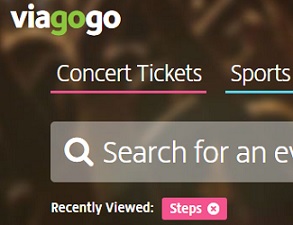Secondary ticketing – could self-regulation work?
 Viagogo’s decision this week to snub the culture committee’s hearing into secondary ticketing was misguided and likely to imperil efforts at self-regulation.
Viagogo’s decision this week to snub the culture committee’s hearing into secondary ticketing was misguided and likely to imperil efforts at self-regulation.
The secondary ticketing market, which includes online marketplace sites like Viagogo and GetMeIn!, is worth an estimated $8bn a year.
While useful to genuine fans, these sites also make it very easy for touts to sell tickets at hugely inflated prices – and that, in part, is one of reasons why the committee was keen to take a look at the industry.
Perhaps another reason for wanting to hear from Viagogo is a recent report that it was ‘reselling tickets for a cancer charity gig by Ed Sheeran’ for thousands of pounds, and also ‘charging theatregoers up to £5,000 to see the popular musical Hamilton’.
In addition, The Guardian reported that ‘an £85 seat to see Adele at the London O2 last year was reportedly being sold online for £24,840.’
While all this is going on, touts are increasingly using automated ‘bots’ to ‘get around security measures designed to limit ticket purchases and snap up hundreds of tickets as soon as they go on sale.’
The Government is under pressure to deal with the issue. Newly-proposed legislation could make it a criminal offence to use ticket-buying bots, while the Government is also demanding that ticketing firms increase efforts to prevent touting.
As part of a clampdown, new rules will be imposed on secondary ticketing sites to ensure a customer has full transparency regarding their purchase and is provided with information such as the seat location, seat number, and the ticket’s face value. This again may act as a deterrent, preventing touts from putting tickets up for sale which may be of a poorer quality than they otherwise appear.
Although action now seems to be taking place, it has taken a long time to get this far. Since 2012, there have been innumerable reports and investigations on secondary ticketing by Office of Fair Trading (OFT), the Competition & Markets Authority (CMA) and the Government, with little action.
Even as recently as last week, the CMA was only offering a vague commitment:
“Over the coming months,” it said. “The CMA will continue to use its formal powers to gather and assess evidence about the suspected breaches. If, after it has gathered and assessed the evidence, the CMA considers that the law has been breached, it will take the necessary action to secure compliance”.
The truth is that touts have been around for as long as tickets have been sold. As the world around them has adapted to supposedly combat their practices, so they too have adapted to counteract it.
It is admirable that the Government is seeking ways to protect the consumer and ensure they know exactly what they are buying; but, ultimately, if someone is daft enough to pay 300 times the face value of a ticket to see Adele, is it the role of a government to stop them?
One route would be for the Government to ban secondary ticketing all together, but that would be unfair to genuine ticket resellers – and to real fans.
One could argue that reselling could be put exclusively back into the hands of the box office, but for larger shows or smaller box offices, it’s a headache they don’t need and most don’t allow refunds or exchanges anyway.
The Government could separate the secondary ticketing companies from the primary – so there is no vested interest or financial return to the primary reseller – but this would not have any impact on independent firms like Viagogo.
However, as the CMA has noted, producers and ticketing companies themselves are making efforts to stop the touts. For example, the UK transfer of Broadway’s smash hit ‘Hamilton’ has implemented a ‘ticketless’ system whereby theatregoers will be required to swipe the original purchaser’s credit card to gain entry to the show. This is an effort being led by Ticketmaster (which, incidentally, also owns the secondary resellers SeatWave and GetMeIn!)
Perhaps this approach provides a hint at the solution: sensible self-regulation and innovation from an industry which is best placed to understand the issues it faces.
Tellingly, however, tickets for Hamilton can be found right now on Viagogo for £4,498.10.
And that, surely, is a sign there’s still a long way to go.